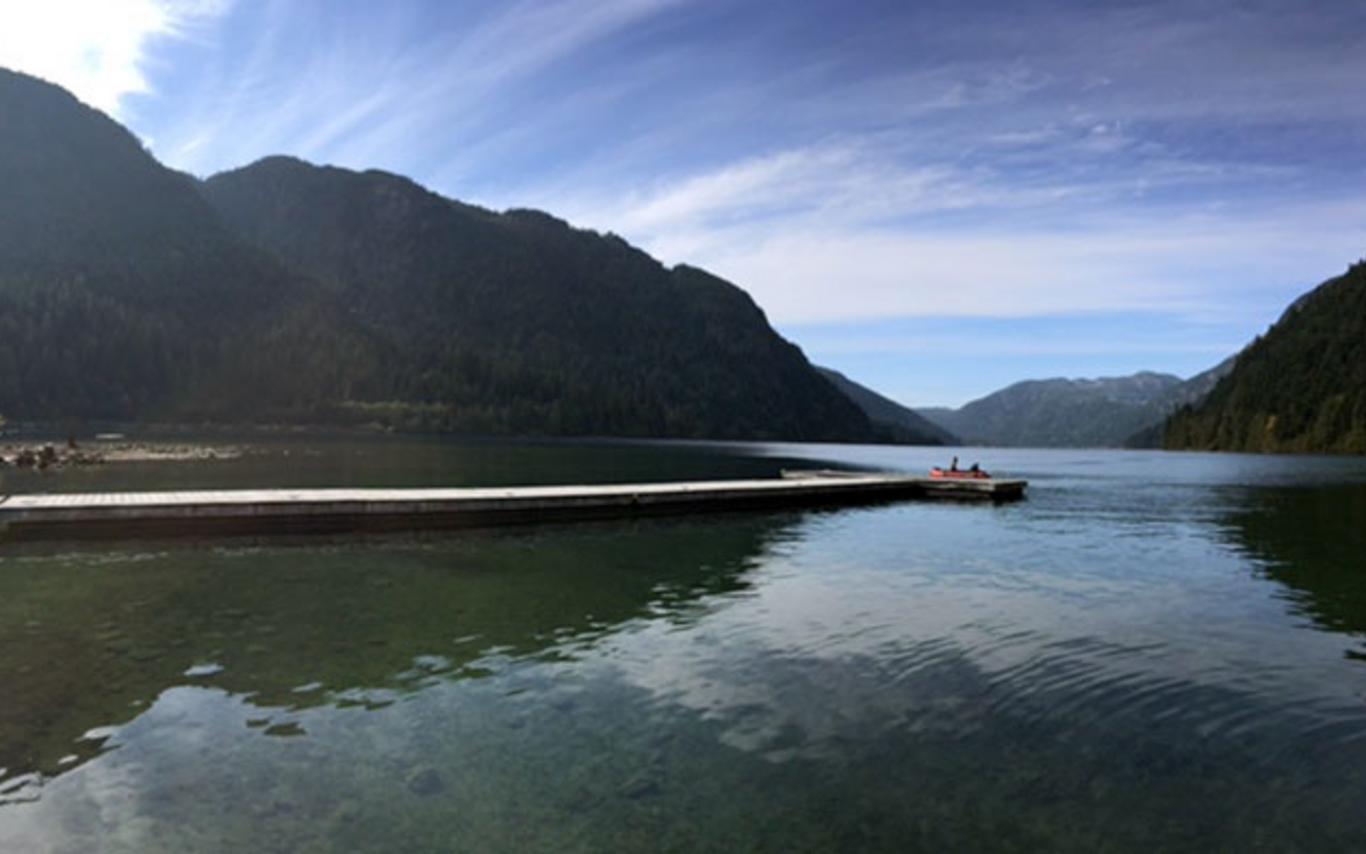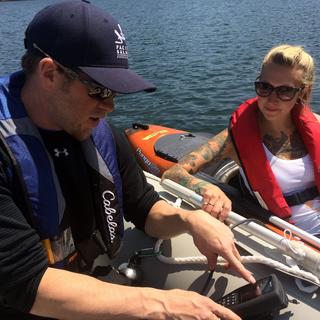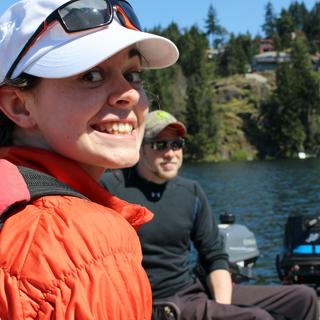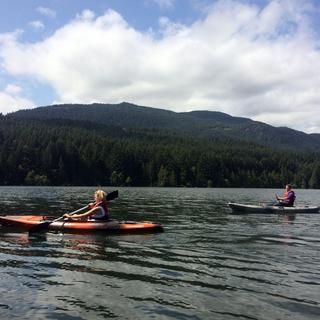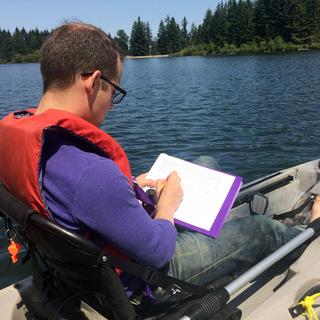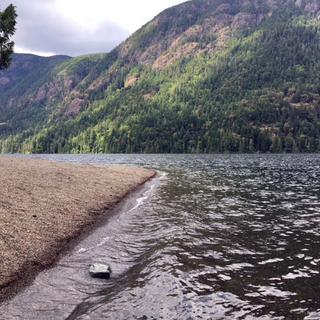Today, October 16th, 2016 was officially the last day of our lake monitoring project that has been underway over the last twelve weeks. I personally feel very fortunate to have been able to be a part of this project over the summer, which has been funded by the Vancouver Island University Research and Awards committee.
Today was a very rainy day on Cameron Lake and Spider Lake. However, luckily the wind took a break from blowing this morning and let us get out on the water. Our first lake monitoring day was on July 18th, 2016, since than we have been monitoring Cameron Lake and Spider Lake once per week for twelve consecutive weeks. We have watched the seasonal behavior in both lakes as water levels decreased through the summer. However, it was a very satisfying sight to see today, that the water level in Cameron Lake has risen approximately five feet from the series of rain storms we experienced on the eastern side of Vancouver Island. Spider Lake on the other hand, has barely risen at all. I suspect this is due to the lack of rivers flowing into or out of the lake. I’m sure with winter on our doorstep and much more precipitation to come, Spider Lake will have increased water levels. Over the duration of our lake monitoring project we have noticed a number of changes that have occurred in the lakes. Including changes in the following attributes; water clarity, water temperature, overall water levels, and the lakes going from being stratified in the summer, to now being mixed homogenously from surface to the bottom of the lakes. We have witnessed Osprey fishing at Cameron Lake, and plenty of recreational fisherman catching bass at Spider Lake.
In preparation for the lake monitoring project, the student’s and team at the Mount Arrowsmith Biosphere Region Research Institute (MABRRI) took a course to become certified lake monitors. The course overviewed what environmental parameters to measure when assessing the overall health of a lake system. We were very fortunate to have had the opportunity to work alongside and to collaborate with organizations such as, the Mid Vancouver Island Habitat Enhancement Society (MVIHES), Friends of French Creek Society, Ministry of Environment and the Regional District of Nanaimo’s (RDN) Drinking Water and Watershed Protection Program.
Many thanks to geography professor Matthew Bowes for being successful in his application for funding to create the lake monitoring project. From MABRRI we would also like to say a big thanks to our technical advisory committee (TAC) including, Pete Law, and Sandy Robinson and everyone else who contributed to the lake monitoring project.
